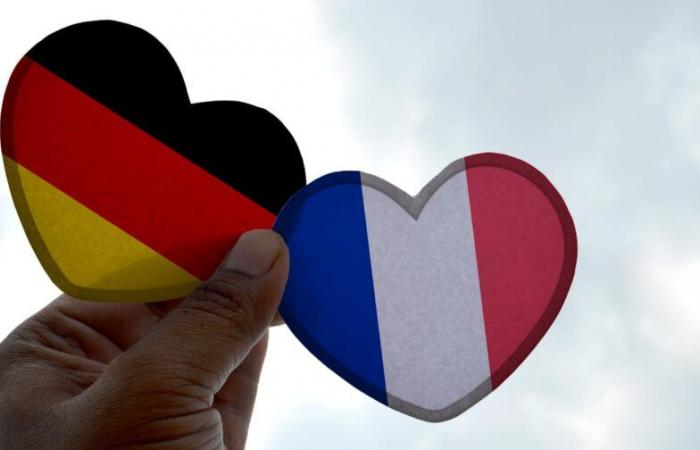
With the return of protectionism in the United States and China, France is once again becoming a key market for German companies. Mid-sized companies (ETI), spearheading the “Mittelstand” and the German economic model, are investing in France. With what practices and successes? Intercultural management story.
At the end of 2024, the OECD (Organization for Economic Cooperation and Development) is lowering its growth forecasts for France and Germany. The two main European economies are expected to experience GDP growth of 0.9% and 0.7% respectively in 2025, a decline of 0.3 points compared to the forecasts announced in September. These figures are all the more worrying as the OECD raises global growth by 0.1 point, which should stand at 3.3% in 2025, driven by the dynamism of the American economy.
Read more: China: is the economic slowdown threatening the presence of German medium-sized businesses?
These pessimistic forecasts particularly concern mid-sized companies (ETI). They designate organizations which have between 250 and 4,999 employees and whose annual turnover is less than 1.5 billion euros. Their performance depends on orders placed by large groups. Germany has 12,500 ETIs, compared to 5,500 for France. They form the famous “Mittelstand”, at the heart of the success of the German economic model. These family businesses are often specialized in the industrial field and are distinguished by their competitiveness on a global scale.
France, a key market for Germany
With a volume of 189.6 billion euros, France constitutes Germany's fourth trading partner in 2023, behind China – 254.2 billion euros – and the United States – 252.5 billion euros – and the Netherlands – 214.8 billion euros. Faced with the tightening of protectionist measures announced by the Chinese and American governments, German mid-sized companies could strengthen their presence on the French market in the years to come. To achieve this, they must overcome numerous obstacles that can compromise the expected success.
In this context, we carried out a case study with a German mid-sized company in the machine tool sector. We conducted 30 semi-structured interviews with the managers of its French subsidiary, its customers in France and experts in Franco-German management. The analysis of the data collected highlights the obstacles that the company had to face in its development on the French market and the solutions it adopted to overcome them.
Create a subsidiary in France
The German ETI first relied on its reputation and product quality Made in Germany to export its products to the French market. However, it failed to develop its sales. The company faced two major obstacles:
-
The handicap of foreignness (liability of foreignness), linked to his lack of knowledge of the local rules of the game;
-
the handicap of not belonging to networks (liability of outsidership), linked to its absence in business networks in France.
Subscribe today!
Whether you are managers looking for strategies or employees wondering about the choices of their hierarchy, receive our thematic newsletter “Company(s)”: the keys to research for professional life and advice from our experts.
-The company then decided to create a subsidiary in order to better meet the expectations of its customers and develop its business networks in France. It recruits bilingual and bicultural employees to overcome linguistic problems and to manage Franco-German cultural differences. These concern in particular time management, customer relationship management and communication style.
Intercultural management
The German ETI uses intercultural management to overcome the obstacles of foreignness and non-membership of networks. Indeed, the cultural differences between France and Germany are marked. French culture is polychronic – several activities are carried out at the same time. German culture is rather monochronic – time is used linearly and programmed precisely. In France, interpersonal distances are lower; the relationships developed between people play an important role in the business context. In communication, French interlocutors often refer to the context, while German interlocutors are used to providing more detailed information.
The company thus manages to develop its sales and enhance the reputation and quality of the products. Made in Germany. They give it a notable competitive advantage on the French market. “The French customer demands and wants a lot more support, rather wants feedback and would also like to have a lot more. The support effort is definitely more important than for German customers,” reports a regional sales manager of the French subsidiary.
To overcome the handicap of not belonging to networks and become insider localthe company seeks to integrate into business networks by participating in professional exhibitions in France – for example at the France Innovation Plasturgie exhibition in Lyon. Its bilingual and bicultural employees are comfortable communicating with French customers who prefer a more indirect and implicit communication style than in Germany. The director of the French subsidiary, interviewed, confirms this:
“What we are also trying to do with the subsidiary is to get closer to organizations, whether professional or regional […]. So, participating in trade shows with them gives us a network of customers and regional contacts. »
Made In Germany with French Touch
The results of our study highlight the main obstacles that German mid-sized companies must face when seeking to expand into the French market. They highlight the solutions they can adopt to become “local insiders”: offer products Made in Germany with French Touch.
The strong economic and political instability on both sides of the Rhine could accentuate the obstacles encountered by businesses in the neighboring market. According to the annual “Going International” survey, conducted by the German Chamber of Commerce and Industry – German Chamber of Industry and Commerce, (DIHK) – 61% of business leaders surveyed see an increase in obstacles in international markets in 2024. This is the highest rate recorded since the first survey was carried out in 2012 when the figure was 34 %.
A trend far from diminishing. But an opportunity to use intercultural management in the establishment of German companies in France.
This article was co-written with Nino Ruscigno, graduate of the Executive DBA, IAE Nice, Université Côte d'Azur.





